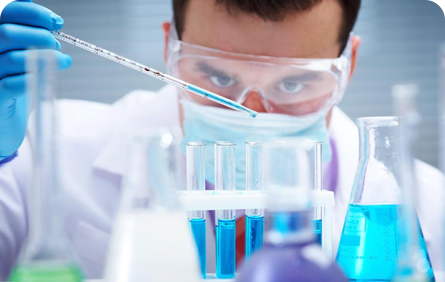Pharmaceutical Engineering: Refining Medicines, a Promising Future!
2025-02-13

Pharmaceutical Engineering: Refining Pharmaceuticals, a Promising Future!
In today's rapidly evolving technological landscape, pharmaceutical engineering, as an interdisciplinary field integrating biology, chemistry, and engineering, is driving the development of the pharmaceutical industry at an unprecedented pace. It is not only crucial for safeguarding human health but also represents a significant intersection of technological advancement and social well-being. This article will delve into the current state, challenges, technological innovations, and future prospects of pharmaceutical engineering, showcasing the limitless potential and hope within this field.
I. Current State and Importance of Pharmaceutical Engineering
The core of pharmaceutical engineering lies in using scientific research and engineering techniques to transform laboratory compounds into safe, effective, and quality-controlled pharmaceuticals. This process encompasses various stages, from drug discovery, synthesis process optimization, and formulation development to quality control, clinical trials, and commercial production. With the global aging population, the emergence of new diseases, and the growing demand for better health, efficient and precise medical solutions are becoming increasingly critical. Pharmaceutical engineering is key to addressing these health challenges, continuously driving new drug development, improving drug accessibility, and safeguarding human health.
II. Challenges and Countermeasures
Despite significant achievements in pharmaceutical engineering, numerous challenges remain. Firstly, the long and costly new drug development cycle, with its uncertainties from laboratory to market, presents a hurdle. To address this, the industry is actively exploring innovative R&D models, such as leveraging artificial intelligence and big data to accelerate drug screening and clinical trials, thereby shortening the development cycle. Secondly, drug safety and efficacy are the lifeblood of pharmaceutical engineering, and ensuring drug quality is an ongoing priority. By establishing rigorous quality management systems and employing advanced analytical testing techniques, pharmaceutical companies continuously improve drug quality standards to guarantee patient safety.
III. Technological Innovation Leading the Future
Technological innovation is the key driver of the continuous development of pharmaceutical engineering. In recent years, the rapid advancement of biotechnology, particularly breakthroughs in gene editing, synthetic biology, and cell therapy, has opened up new avenues for drug development. These technologies not only make treatments for complex diseases such as rare diseases and cancer possible but also promote the development of personalized medicine, shifting from a 'one-size-fits-all' approach to a 'tailor-made' approach. Furthermore, the application of advanced manufacturing technologies such as continuous manufacturing and intelligent manufacturing demonstrates significant potential in improving production efficiency, reducing costs, and enhancing flexibility, providing strong support for the transformation and upgrading of the pharmaceutical industry.
IV. Green Pharmaceuticals and Sustainable Development
With growing environmental awareness, green pharmaceuticals have become a new trend in pharmaceutical engineering. The application of green chemistry principles, such as selecting environmentally friendly solvents, optimizing reaction conditions to reduce waste generation, and developing recyclable or biodegradable packaging materials, aims to minimize the environmental impact of the pharmaceutical process. Simultaneously, the concepts of circular economy and efficient resource utilization are being introduced into the pharmaceutical industry chain to promote the sustainable development of the entire industry. This is not only environmentally responsible but also a necessary choice for the long-term development of enterprises.
V. Future Outlook: Intelligence, Internationalization, and Win-Win Cooperation
Looking ahead, pharmaceutical engineering will become more intelligent. The deep integration of artificial intelligence, the Internet of Things, and cloud computing will drive the intelligent upgrading of pharmaceutical processes, achieving digital management of the entire chain from raw material procurement and manufacturing to logistics and distribution, and improving overall operational efficiency. Simultaneously, with deepening globalization, international cooperation in the pharmaceutical industry is becoming increasingly close, with cross-border R&D cooperation, technology transfer, and market access becoming the norm, accelerating the optimization of global pharmaceutical resources and the rapid dissemination of innovative achievements.
In conclusion, pharmaceutical engineering, as a discipline concerning human well-being, stands at the forefront of technological innovation, facing challenges, seizing opportunities, continuously exploring the unknown, and improving drug research and production. In the future, with continuous technological advancements and deepening global cooperation, the pharmaceutical engineering field will shine even brighter, contributing even more to human health.
Previous:




